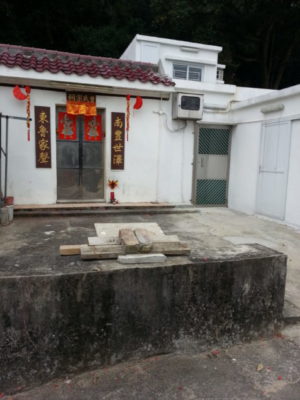You have no items in your cart. Want to get some nice things?
Go shopping Mai is bringing her little boy along, as she always does. She didn’t tell him, but he already knows where they’re heading because she asked him to bring along that cylindrical breath mint tin box. She feels he needs it when he goes on these visits with her. He doesn’t like any sort of candy except breath mints. He pops the last one into his mouth; it’s not as hard as a breath mint should be because of the humidity in the village where they live, but he doesn’t complain. He holds the empty tin box in that hand of his, the one with the purplish birth mark that spreads across the ridges of his knuckles. She has told him it is the map of South America and that she knows this because she visited a lot of places before she had him. She has hung an airline tag from the iron gate in front of their white brick house as a gentle reminder of her penchant for travels. He swipes the bottom of the tin box against the tag after she locks the door. He says “beep” as though he’s scanning a barcode.
Mai is bringing her little boy along, as she always does. She didn’t tell him, but he already knows where they’re heading because she asked him to bring along that cylindrical breath mint tin box. She feels he needs it when he goes on these visits with her. He doesn’t like any sort of candy except breath mints. He pops the last one into his mouth; it’s not as hard as a breath mint should be because of the humidity in the village where they live, but he doesn’t complain. He holds the empty tin box in that hand of his, the one with the purplish birth mark that spreads across the ridges of his knuckles. She has told him it is the map of South America and that she knows this because she visited a lot of places before she had him. She has hung an airline tag from the iron gate in front of their white brick house as a gentle reminder of her penchant for travels. He swipes the bottom of the tin box against the tag after she locks the door. He says “beep” as though he’s scanning a barcode.
They’re the latest family to move into the Ma Wu Tsai Village in Sai Kung District — admiringly referred these days as the “Longevity Village.” They moved there in 2030, lured by the affordable rent. A month after they moved in there was widespread local, and some worldwide, media coverage about a university study that measured the correlation between residential areas and the longevity of the people living there. The research found that the Longevity Village boasted the highest number of centenarians in the city — seven times more than the average in developed countries. Another serendipitous finding was that in the last hundred years the native residents of the village have had zero occurrence of cancer. Zero.
She’s heard somewhere that big real estate developers have come to survey the village, but she shrugs it off. It won’t make any difference unless she has the money to buy a house here. She grew up in a small village south of Bangkok in Thailand. As far as she’s concerned, she’s more intent on experiencing real city life with her son navigating high-rises in Hong Kong, or back in Bangkok — after she’s made enough, that is. She has other more pressing issues to worry about than cancer.
As they walk, her son keeps flipping the hinged lid of the tin box open with his thumb. She holds his other hand. The first time she brought him along on one of these visits, her heart skipped a beat whenever the metal lid tapped. But now the noise encourages her like trumpets and drums cheering for someone as legitimate and grandiose as an Olympic winner coming home.
It’s three-fifteen in the afternoon. She is pretty sure most of the centenarians are napping. And so are their grandchildren — retirees themselves — who doze off watching babies and toddlers (the centenarian’s great-great-grandchildren) play beside their families’ dogs, who are also napping.
The houses in the village are all three-story, quite modern, surrounded by shrubs and trees and bare concrete ground instead of green lawns. When she brings her son to the house at the corner of the village, her son beeps his tin box over each of the four connected silvery rings on the hood of the car parked in the front yard. Beep. Beep. Beep. Beep. Then he goes on to check the back of the car for more rings. She lets him. Her eyes take the time to take in the laundry hung on the front porch and on the balconies. A white terrier is curled up in the middle of the second-floor balcony beneath a bed sheet that hangs on a pole to dry.
Perhaps the recipe to longevity, she thinks, feeling amused, is plenty of sleep and clean laundry.
When her son is done beeping, he comes to hold her hand. “Pretty,” he praises, looking up at the perfect hair bun she has set by herself. Like the hair bun the ladies who work in the airport have. She brought him to the airport once. As their bus neared the airport, she expected him to be mesmerized by the airplanes descending close to the sea, but he was more intrigued to see the vast water. “Sea,” she told him. “Sea! Sea!” he got unusually excited. He should know she works there as an airline ground crew member because he has heard her say so every time a neighbour asks. What the job entails, he doesn’t know.
The TV is on. Her son swipes his tin box across the dehumidifier’s top, the homework spread on the couch, and the stuffed Doraemon, among other things. Beep. Beep. Beep. He’s a good kid; never moving anything when they’re in people’s houses, as if he truly understands the significance of his mother’s undertaking. He’s three, but still not speaking many words. He’s quiet, like her.
An unexpected, but not uncommon, situation: there is another person besides Mai and her son in the house. The person is taking a shower. A girl. Mai has observed this family for a week. Her previous conclusion is confirmed today by the décor in the house and the two pairs of adult-sized slippers — one pair red, the other blue — lined neatly outside the entrance door. A pair of girly slippers must be lying somewhere on the moist bathroom tiles then.
She thought she was relaxed because she has been rehearsing an explanation in her head since last night, so she is surprised to find herself holding her breath.
When she emerges from that bigger bedroom with the wedding photo and the queen-sized bed, she tells her son they should leave. He obediently holds her hand, but then abruptly boomerangs to swipe his tin box over the golden cross standing on a bookcase. Beep. The sound of the shower and the TV resurface to her vigilant eardrums. She is suddenly compelled to unbuckle her purse and take out one of the hundred-dollar notes she has just slipped into it. She places it under the weight of the cross. She is touched. Touched not because of the promise of the cross, but by thinking the girl in the shower is so blessed. Her visitors are not anyone harmful, just a mother with a small boy.
The village house they’re heading to next doesn’t have a car. It does have quite a few papaya trees. And a ramshackle brick shed next to it. A neighbour has told her the shed was built at least a hundred and thirty years ago and used to house pigs in the old days.
Not a lot of houses in the village have vegetable fields, but this one does. When they pass by the small fields in front of the house, her son looks up at her again and scrunches his face. The fields have an awful stench of urine. They must have just been fertilized and it will take two weeks before the vegetables are edible. She feels at once smug and chagrined by her agricultural knowledge — she spent more than her share of time toiling away in the fields back home, wearing her mother’s dirty work clothes. When her son stretches up to beep over the tummy of a scarecrow made with two broomsticks and a grey shirt, she suddenly thinks of her parents.
Would they have liked my son if they’d ever met him?
Her son beeps over each of the wooden logs – more than twenty of them – that lie against the exterior wall of the former pig shed to air-dry. Beep. Beep. Beep. There must be a wood-burning stove inside the pig shed. With this kind of humid weather, it will take at least two or three seasons for the logs to dry completely. She almost feels sorry for the centenarian lady who lives in the house; it will take that long for her logs to become useful.
The centenarian lives here with her elderly daughter. Their house may be the easiest of all those she has visited in the past. In the house of someone who in this day and age still burns wooden logs to cook, she knows just where to look: the centenarian and her daughter both keep a stack of cash under their pillows.
Mai looks at the photos sitting on top of a cabinet by the centenarian’s bed. She can’t take her eyes off one of them. It seems that not too long ago there was an old man living here too. Why do all centenarians, men and women, look alike just as new born babies do?
When she emerges from the bedroom, her heart plunges at seeing her son eating red grapes at the dining table, sitting beside the centenarian.
“Are you Yuen Mei-mei’s friend?” the centenarian asks. The deep furrows on her face move coherently as she grins at Mai. Her small irises look clouded.
After having an early dinner at Yuen-poh-poh’s house, Mai walks home with her son. He’s skipping joyfully, cradling two baby-sized green papayas in one arm. He insisted the centenarian keep his tin box in return by stuffing and re-stuffing it into her pants pocket until she stopped resisting.
“Make soup with these papayas and some carrots and meat. Very tasty,” Yuen-poh-poh said before they left, her coarse hand kneading Mai’s affectionately as if she understood the young woman’s hardship.
The bag of green papayas hanging from Mai’s arm bumps against her thigh as she walks. She thinks about the photo of the old wife and her old husband posing under one of the papaya trees. Smiling identical centenarian smiles. Mai imagines the old couple ploughing a field together; him sowing papaya seeds in the soil beside their village house. She sees the old husband water their plants every day for four years. She sees them patiently watch their papaya trees grow. And the old wife looking forward to making the hearty papaya soup that he likes.
About Cindy Lam
Cindy lives with her incredibly supportive husband and their three-year-old son in Hong Kong. She is a member of Hong Kong Writers Circle, and the organizer of Hong Kong Women Writers Afternoon Meetup. She is currently working on a short story collection set in her hometown.




